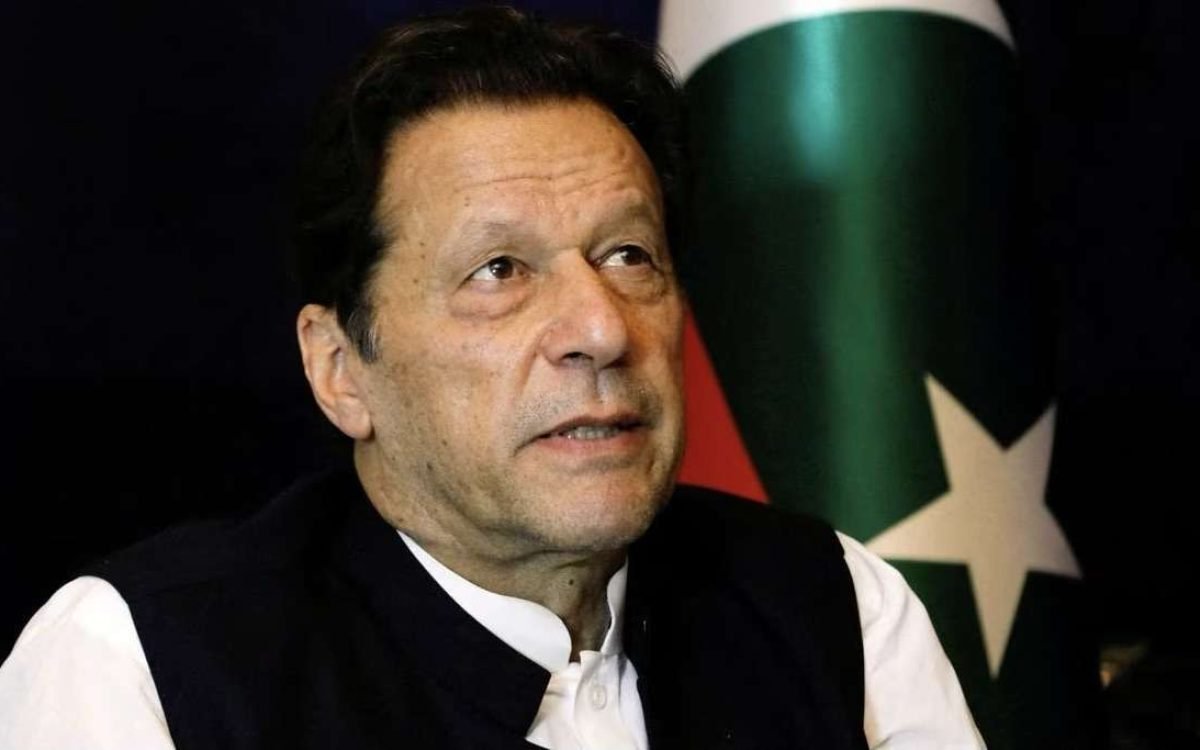Imran Khan Faces 10-Year Sentence: A Blow to the Former PM’s Political Odyssey
In a significant legal setback for former Pakistani Prime Minister Imran Khan, a court in Pakistan has sentenced him and his party deputy, Shah Mahmood Qureshi, to 10 years in prison each for allegedly revealing official secrets. This ruling adds to the challenges facing Khan, who was previously ousted through a no-confidence vote in April 2022 and is currently serving a three-year prison term in a separate graft case. The court’s verdict, known as the Cipher case, comes ahead of the February 8 parliamentary elections, where Khan is barred from running due to his previous criminal conviction.
Political Turmoil and the Cipher Case: A Complex Scenario
Imran Khan, a former cricket star turned politician, faces more than 150 pending cases, ranging from contempt of court to terrorism and inciting violence. The Cipher case specifically accuses Khan of waving a classified cable during a rally after his ouster, claiming it was proof of threats against him and alleging a U.S.-backed conspiracy orchestrated by the military and the Pakistani government. While Khan contends the document, dubbed Cipher, was never disclosed in detail, the court’s ruling adds to his legal woes.
Impact on the Upcoming Elections: Khan’s Absence on the Ballot
The timing of this verdict is crucial, as it precedes the upcoming parliamentary elections in February. Although barred from participating due to his prior conviction, Imran Khan remains a formidable political force with a substantial grassroots following and anti-establishment rhetoric. Khan asserts that the legal actions against him are part of a larger plot to sideline him before the elections. The ruling could further intensify political tensions in Pakistan, already marked by violent demonstrations and allegations of pre-poll rigging.
Continued Crackdown and Concerns for Democracy
Since Khan’s arrest in May 2023, Pakistan has witnessed violent protests, leading to authorities cracking down on his supporters and party members. The independent human rights commission in Pakistan has expressed concerns about the fairness of the upcoming parliamentary elections, citing instances of pre-poll rigging and the rejection of candidacies from Khan’s party. This raises questions about the democratic integrity of the electoral process.
Khan’s Defense and the Diplomatic Fallout
Throughout the trial, Imran Khan maintained his innocence, stating that he did not disclose the exact contents of the cable during the rally. Qureshi, his party deputy, faced accusations of manipulating diplomatic cable contents for political advantage. Political analysts suggest that the revelations in the Cipher case damaged Pakistan’s diplomatic ties with the United States, impacting relationships and embarrassing key figures.
Looking Ahead: The Ongoing Legal Saga and Political Landscape
Imran Khan’s legal battles continue to shape Pakistan’s political landscape. The former prime minister’s assertion of innocence, combined with his enduring popularity, ensures that he remains a pivotal figure despite legal setbacks. As the Cipher case adds another chapter to Khan’s legal saga, the repercussions on Pakistan’s democracy and the upcoming elections remain subjects of keen observation and debate.
Conclusion: Imran Khan’s Complex Narrative Unfolds
In conclusion, Imran Khan’s 10-year sentence in the Cipher case marks a pivotal moment in his tumultuous political journey. The legal battles, political implications, and the broader impact on Pakistan’s democracy raise crucial questions about the intersection of law and politics. As the former prime minister navigates these challenges, the nation watches with anticipation, considering the potential ramifications for the political landscape and the ideals of justice and governance in Pakistan.









